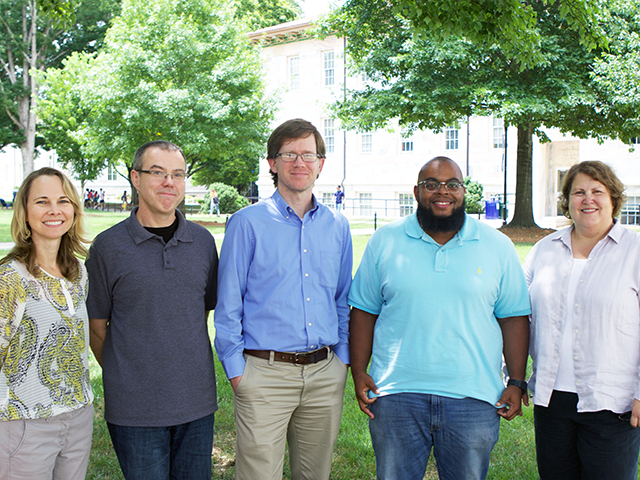
This June, the Assessment and User Experience team (AUX) successfully completed its first project to find out how members of the Emory community think about using different electronic resources.
AUX launched last September as a new section of the Research, Engagement, and Scholarly Communications group (RESC) with Pat Culpepper, Kristan Majors, Chris Pollette, and Doug Slaughter. Doug, who formerly worked with Pat as a student, became a permanent employee as part of the reorganization. In February, the team welcomed leader Michael Luther, who united the team and led them in their first user research project.
In 2018, Emory Libraries shifted its online databases search to Springshare’s LibGuides A-Z list. With that change came the opportunity for users to choose databases by the type of content inside. Assisted by the Oxford Library, Woodruff Health Sciences Center Library, and graduate assistants at the Woodruff Library, AUX polled 205 members of the community regarding the 14 pre-generated database types.
Most people (72.1%) said they used Journal Articles. E-Books were next at 40.2% and Archival/Primary Sources followed in third with 18.6%. Least used were Tests & Measures (0.5%), Government Information (1%), and Musical Scores (1.5%). As expected, there was greater understanding of the 14 types among librarians than in other members of the community. Images, Audio/Video, and Musical Scores were the most well-understood by both librarians and the community, while understanding of Bibliographies, Tests & Measures, and Encyclopedias, Dictionaries, and Handbooks was more variable.

Electronic and Continuing Resources is applying the database types in the new web page, and AUX, working with Sarah Morris and others, is looking for additional ways to leverage its research for instruction and engagement.
Although the scope of this first study was small, AUX is learning how to reach out to members of the Emory community for user experience research. As the department continues to reach out to more users, AUX hopes to enable the Emory Libraries to improve its services for all of its audiences.
The full report is available on Emory Box.
Leave a Reply